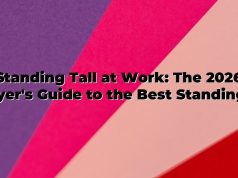Work & Wealth: What Robinhood’s Q3 Surge and $100M Prediction‑Market Win Mean for the Future of Work
Byline: A long‑form reflection for the Work community on how a fintech pivot reshapes employers, employees and the design of modern workplaces.
Opening: A Quarter That Reshapes Expectations
Robinhood’s latest quarterly report landed like a jolt across markets and boardrooms: the company outperformed Q3 expectations and, as CFO Jason Warnick says prediction markets and Bitstamp now generate roughly $100M+ in annualized revenue, boosting overall top‑line performance. That single sentence tells a larger story — one of product diversification, the redefinition of revenue streams in digital platforms, and a signal to employers and workers alike that financial services companies are evolving faster than many talent strategies.
Why the Work Community Should Care
Workplaces are not islands. Employees’ financial lives shape their productivity, loyalty and long‑term career choices. When a consumer fintech like Robinhood reports meaningful revenue from prediction markets and its crypto exchange arm, Bitstamp, it’s not just a finance story — it’s a workplace story with concrete implications for compensation design, benefits, skills development and employer risk management.
Revenue Diversification as a Workplace Signal
The surge from new product lines signals two important shifts for leaders shaping the future of work:
- Business agility drives talent strategy: Companies that rapidly pivot into new markets need employees who can move with them — product managers, compliance professionals, data scientists and designers who understand cross‑disciplinary tradeoffs.
- Compensation must be fluid: As companies tap new revenue models, the traditional salary‑centric approach to compensation is insufficient. Equity, tokenized incentives, and benefit packages that reflect the firm’s revenue mix become more salient.
Prediction Markets and Bitstamp: New Lines, New Responsibilities
Prediction markets — essentially platforms where participants wager on outcomes from elections to product launches — and crypto exchange operations carry different operational footprints than brokerage services. They introduce volatility, regulatory complexity and new customer education needs. For HR and people leaders, that means:
- Onboarding and training: Technical familiarity is no longer optional. Employees across functions need a baseline literacy in digital assets, market mechanics and compliance considerations.
- Policy and culture: Clear guidelines on employee trading, conflicts of interest and disclosure protocols are essential when an employer operates in the same markets employees may use personally.
- Wellness and financial education: As employers become closer to the financial tools their workers use, offering meaningful financial guidance (not marketing) improves outcomes for both parties.
The Talent Imperative: Build for the Crossroads
Robinhood’s move underscores a hiring reality many companies will face: the skills that win in 2025 are hybrid. Breakdowns of typical talent needs include:
- Product + Regulation fluency: Teams need people who can translate product ambitions into compliant roadmaps.
- Security & Infrastructure: Crypto and prediction markets amplify the requirement for robust engineering and security talent.
- Customer Education & Trust Roles: As services get complex, so does the customer relationship. Roles focused on trust, clarity, and dispute resolution grow in importance.
For HR leaders, this means adjusting recruitment pipelines, rethinking job descriptions, and embracing internal mobility and reskilling programs that bridge gaps between product, legal and operations.
Compensation & Benefits: New Revenue, New Options
A company generating material revenue from nascent markets can and should rethink how it compensates employees. Considerations for workplace leaders:
- Broadened equity thinking: Equity plans can be tailored to reflect strategic bets — such as incentives tied to specific product performance segments rather than company‑wide metrics only.
- Crypto‑aware benefits: Offering retirement options, payroll or bonus flexibility that acknowledges digital assets can be a differentiator — but it comes with tax, volatility and fiduciary implications.
- Financial counseling: As employees encounter new asset classes, on‑demand counseling reduces stress and helps prevent poor financial decisions that can adversely affect productivity.
Risk, Regulation and the Duty of Care
More revenue from prediction markets and crypto brings greater scrutiny. For company leaders, this means a sharpened duty of care:
- Audit lines of business for systemic risk exposure.
- Communicate transparently with employees about how changes in the business affect jobs, benefits and workplace policies.
- Invest in compliance and legal teams early — not as an afterthought.
These steps protect the workforce and preserve reputation — a commodity as precious as capital in a tight labor market.
Culture: From Brokerage to Platform — Managing the Transition
Transitioning from a single‑product company to a multi‑product platform affects culture. Workers used to a specific mission may need new narratives to stay engaged. Leaders should:
- Craft stories that connect new product lines to the company’s core mission and values.
- Provide clear pathways for career growth that align with the company’s strategic direction.
- Encourage cross‑functional projects that make new business models tangible for people across the organization.
Practical Playbook for People Leaders
To translate Robinhood’s headline into workplace action, consider this short playbook:
- Scan: Identify how new revenue streams change the company’s risk and talent profile.
- Reskill: Launch targeted reskilling programs for compliance, product and customer education roles.
- Rethink Rewards: Pilot compensation structures that reflect product segment growth and volatility.
- Communicate: Share a simple narrative with employees about what business changes mean for them.
- Safeguard: Strengthen conflict‑of‑interest policies and provide financial wellness resources.
Looking Ahead: Opportunity and Responsibility
Robinhood’s Q3 performance is more than a market beat. It is an operational pivot that invites leaders across industries to rethink what their companies sell, how they compensate and how they steward employee wellbeing. The emergence of new revenue lines offers fresh growth — and with it old responsibilities in new clothes.
For the Work community, the lesson is practical and optimistic: when companies diversify, they create new kinds of work. The best employers will help employees navigate those changes with clarity, training and benefits that match the complexity of modern finance. That alignment — between product ambition and people care — will determine which firms win talent and which ones lose it.




























